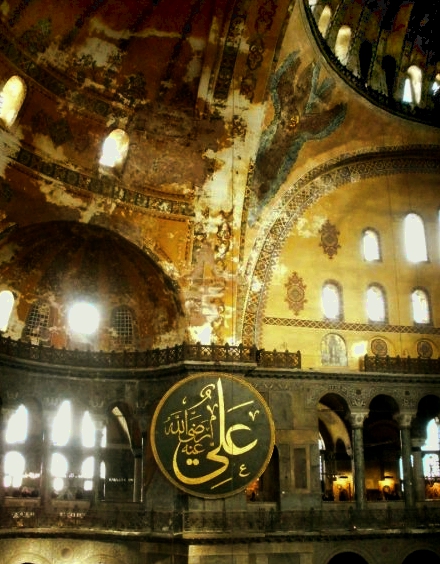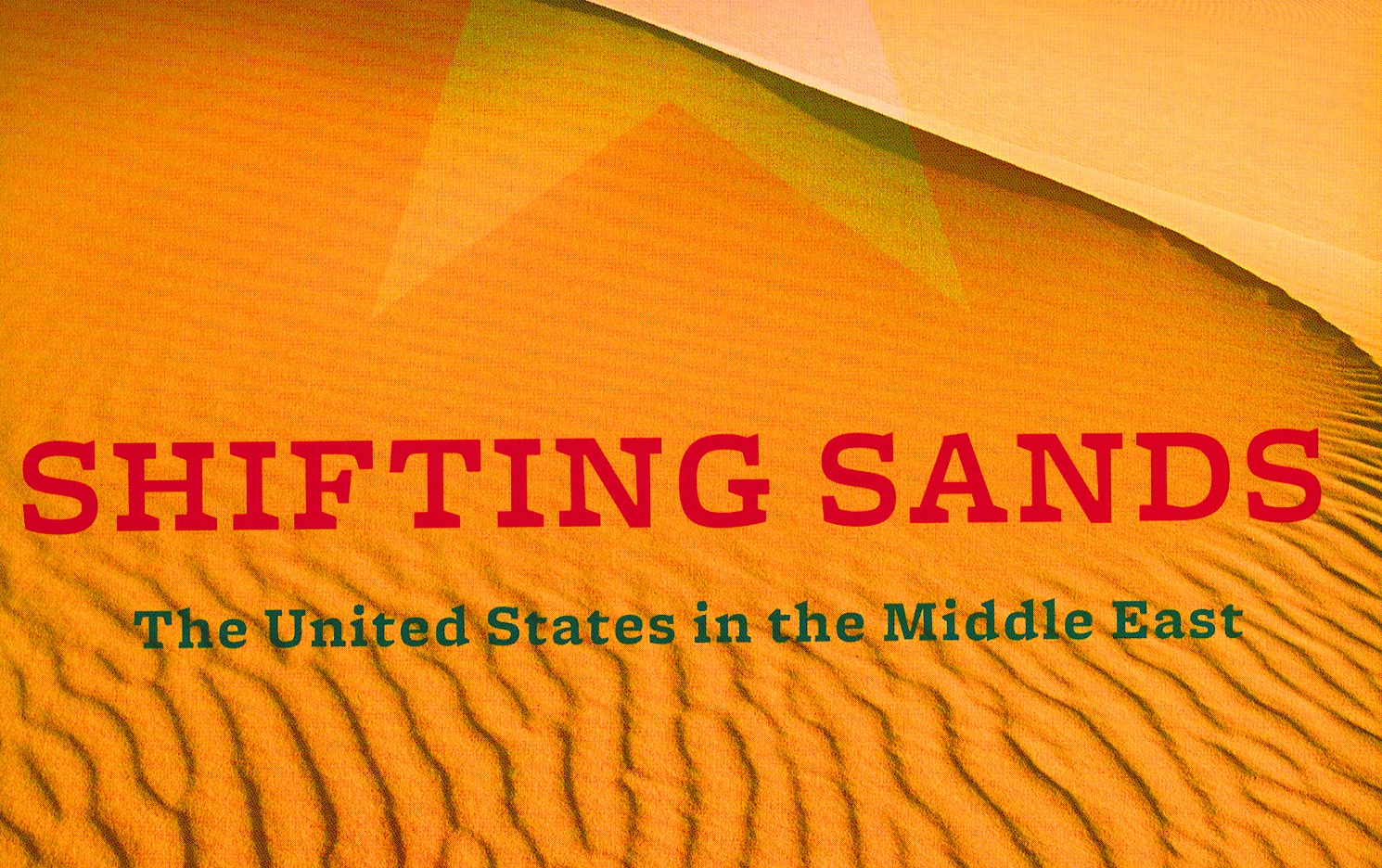The Republic of Turkey stands at the crossroads of the Eastern and Western worlds. It is a land bridge between Europe and Asia, and through it flows the major water route between Russia and the Middle East. Its location has always put Turkey at the center of cultural origin and intercourse. For hundreds of years the Ottomans Turks ruled a vast empire that stretched from Algiers to the gates of Vienna – an empire that at one point threatened to overrun Europe. Its influence in the world fell suddenly after World War I but since the founding of the Republic of Turkey by revolutionary Mustafa Kemal Atatürk in 1922 there has been formidable Turkish influence in the surrounding regions. In recent decades Turkey has slowly re-emerged as an economic and military powerhouse with the geographic and cultural position to bridge the East and West in the modern age. Today, Turkey’s bid to join the European Union (EU) has raised speculation on the implications Turkish EU membership would have for the region, the EU, and the world. Old prejudice dies slowly. There is suspicion among some EU members that Turkey is not “European” enough to be admitted to the Union. But in a way, Turkey’s bid for EU membership raises the fundamental question: in the modern age, what is the common identity and purpose of this diverse collection of states that waged war on one another with such devotion not so long ago? The future success of the European Union may well depend on its ability to rise above old differences and see Turkey as a valuable partner in facing the challenges and opportunities of the twenty-first century.

Officially, Turkey has been an Associate Member of the EU since the 1963 “Ankara Agreement” set the stage for economic integration between Turkey and the European Economic Community (EEC), through tariff quotas, free movement of labor, and EEC financial assistance to Turkey. On April 14, 1987 Turkey submitted its application for EU membership and was subsequently acknowledged as an official candidate for full membership on December 12, 1999. Negotiations on Turkey’s viability as a member state opened on October 3, 2005, and have been taking place internally, among current member states, and bilaterally, between Brussels and Ankara. While there remain many potential stumbling blocks in the negotiations, full EU membership for Turkey would serve the Union’s interests in several ways and it should make every reasonable effort to make it happen.
Turkey has long maintained a strong and vigilant military. Its strength could fortify EU security in several unstable regions that border Turkey and are potentially hostile to European interests. Examples are the independent democracies emerging from a crumbling Yugoslavia, an ever turbulent Middle East, and the ongoing Nagorno-Karabakh territorial dispute between Azerbaijan and Armenia. Turkey’s accession would give greater regional military influence to the EU. Turkey boasts the 10th largest military in the world and is the 2nd largest contributor to NATO (behind the United States).
Turkey’s proximity to conflict areas combined with its standing military might render it an undeniable resource to the European Union’s military strategy and capabilities. For the EU to deny membership to a country that would clearly embolden its important military influence in the most troubled regions of the world would be to thumb its nose at very real and pressing security concerns.
Turkey’s geographic location also predisposes it to play an important role in securing the EU’s future energy supplies. A key element of this energy security is the Nabucco natural gas pipeline proposed to run from the Caucasus and Middle East regions through Turkey and the Balkans to Austria. This pipeline would provide the EU a direct reliable gas supply link and reduce its dependency on current unreliable pipelines running from Russia through the Ukraine. The precariousness of this link was all too apparent in the winter of 2009, when Russian – Ukraine politics shut off gas supplies to eastern Europe during a period of sub-zero temperatures.
Accession of Turkey to the EU would help facilitate the construction of the Nabucco pipeline by quelling regional conflict in the Caucasus as well as soothing relations with Middle East suppliers, none of which have been confirmed as suppliers to the pipeline, but yet whose contribution is paramount to its success. A stable and secure European Union must have a stable and secure energy supply, a reality more easily realized in an EU with Turkey as a member.
Perhaps the most substantial benefit to the European Union of Turkey’s accession would manifest itself economically. Turkey has been one of the fastest growing economies in the world in recent years. Throughout the eighties, nineties and early 2000s Turkey was a world leader in economic growth and was often boasting growth above 6% of GDP for consecutive years. Economists have estimated that Turkey will become Europe’s third largest economy, behind Russia and the UK, by 2050. It has suffered along with other developed nations in the recent global financial crisis, but Turkey shows signs of weathering the storm better than other European economies. Not a single Turkish bank failed in the financial meltdown of 2008-9. With strong manufacturing and agricultural sectors combined with a young and growing population, Turkey has attracted large amounts of Foreign Direct Investment (FDI), twenty-two billion dollars in 2007 alone; and the US Department of Commerce has recognized Turkey as one of the fastest emerging economies in the world with $225 billion in exports this year. Turkey’s strong, promising economy combined with its young labor force is exactly what an aging European economy needs to resume growth and for the EU to sustain an influential voice on the future world economic stage.
Apart from economic gain, Turkey’s accession would also bring the EU cultural benefits. Turkey presents a unique opportunity for Muslim-Western integration because while Turkey’s population is ninety-eight percent Muslim, it maintains a strong tradition of secular democracy comparable to the philosophy of European secular democracies. While some member states view Turkey’s overwhelming Muslim population as a source of its incompatibility with a historically Christian Europe, others see the integration of Turkey and the EU as an important gesture of peace to the Muslim world. According to the Gallup Poll’s “Islam and the West: Annual Report of the State of Dialogue,” while most Muslims around the world respect the West, they also feel that Westerners do not reciprocate this respect and, indeed, polling shows that a minority of Westerners have respect for Muslim culture and the Muslim world. Turkey’s acceptance into the EU would not only be a symbolic gesture of respect but it would also bring Western and Islamic cultures closer together to facilitate mutual understanding and cohesion.
Turkey maintains strong cultural and diplomatic ties with Middle Eastern Islamic nations. The Turkish foreign service has played a major role in facilitating dialogue between Iran and the West. For example, in November of this year Iran declared that it was ready to commence nuclear talks in Ankara with six world powers, the five permanent members of the UN Security Council and Germany. Having a member state Iran trusts and respects would provide substantial diplomatic power to the European Union. Turkey’s accession presents a unique opportunity for the EU to build a bridge between Western and Islamic cultures and doing so would provide a solid foundation on which to build strong and stable Western-Islamic relationship in the future.
The opposition of certain powerful member states to Turkey’s accession to the European Union may eventually be seen as an indulgence in separate national interests and prejudices at the expense of European projects. The two most influential member states, France and Germany, are opposed to Turkey’s entrance for nationalistic reasons. Both are wary of the integration of Turkish traditions. While writing about remarks made by German Chancellor Angela Merkle, commentator Petr Morvay declared :
Multiculti was doomed to failure from the outset . . . Above all because it negated the fundamental cultural differences. … ultimately what is more important is what immigrants are talking about and which values they believe in. The problem is not that Christian churches and mosques stand side by side in a European city, but what is preached in these houses of God: love for one’s neighbors even if they hold different beliefs, or hate. Multiculti is a failure because a number of immigrants have no sympathy for the democratic system, for the freedom of the individual, for equal rights for women and for laws that apply equally to all. A consensus on these common values is however a pre-condition for any kind of multicultural coexistence.
Furthermore, a seemingly insurmountable Turkey-Cyprus conflict threatens to derail the negotiations all together as Cyprus itself is a member state and therefore holds veto power over Turkey’s accession.
Nevertheless, Europe has much to gain from Turkey’s strength at the beginning of this new century – to secure its energy future, maintain strong regional alliances, to ensure the EU’s competitiveness in the global economy, and to facilitate constructive discourse with the Islamic world. Just as Turkey helped bridge East and West for millennia, the European Union should come to see it as its own bridge to the future, a bridge it cannot afford to ignore.
________________________
Bryant, Stephen, and Ben Holland. “Paradigm Shifts Turkey Ahead of the Pack.” Hurreyit Daily News and Economic Review. http://www.hurriyetdailynews.com/n.php?n=paradigm-shift-drives-turkey-ahead-of-the-pack-2010-04-07 (2 November 2010).
EU business Ltd. “NATO chief urges Eu to bring Turkey into defence arm.” http://www.eubusiness.com/news-eu/nato-defence-turkey.3wk (14 October 2010).
GlobalFirePower.com. http://www.globalfirepower.com/ (10 October 2010).
Istanbul Chamber of Commerce. http://www.us-istanbul.com/resources.php?p=faq (19 October 2010).
Republic of Turkey Prime Ministry Investment Support and Promotion Agency. http://www.invest.gov.tr/en-US/investmentguide/investorsguide/pages/FDIinTurkey.aspx (1 November 2010).
World Economic Forum. “Islam and the West: Annual Report on the State of Dialogue.” https://members.weforum.org/pdf/C100/Islam_West.pdf (10 October 2010)



